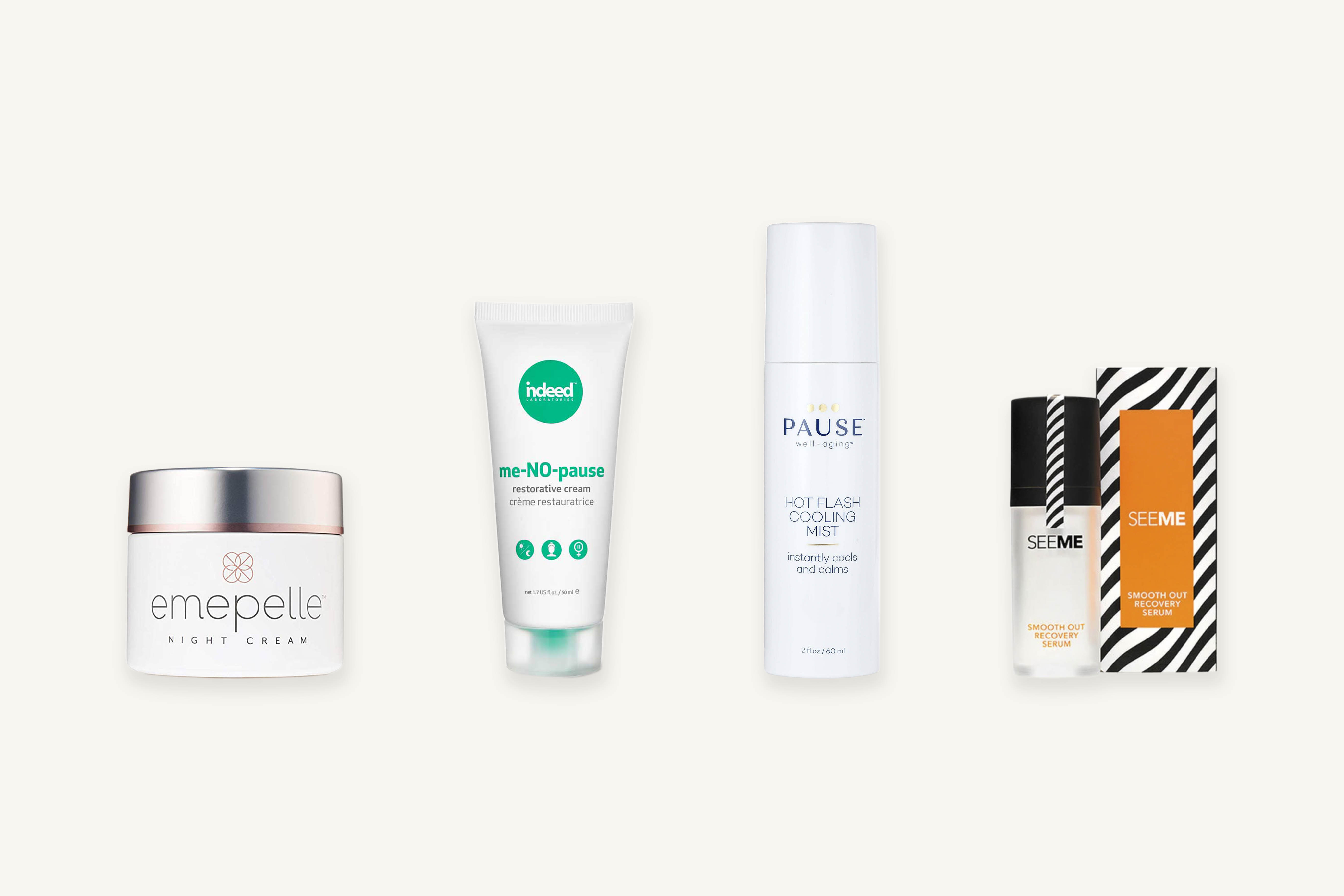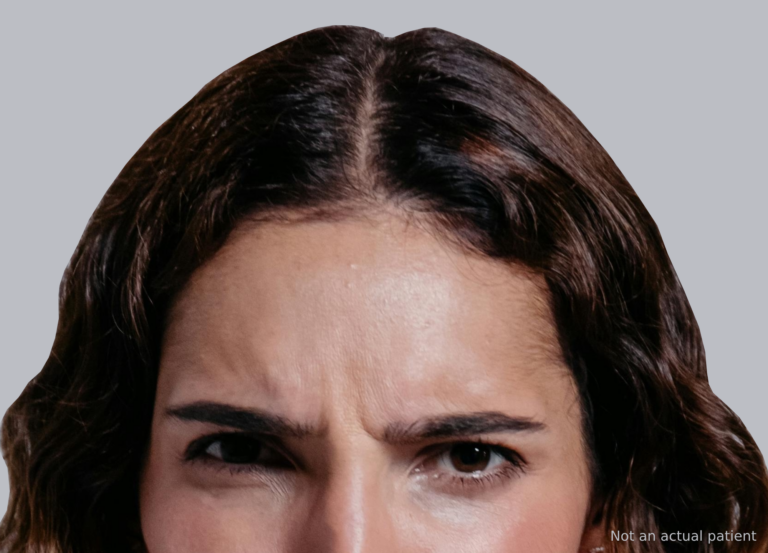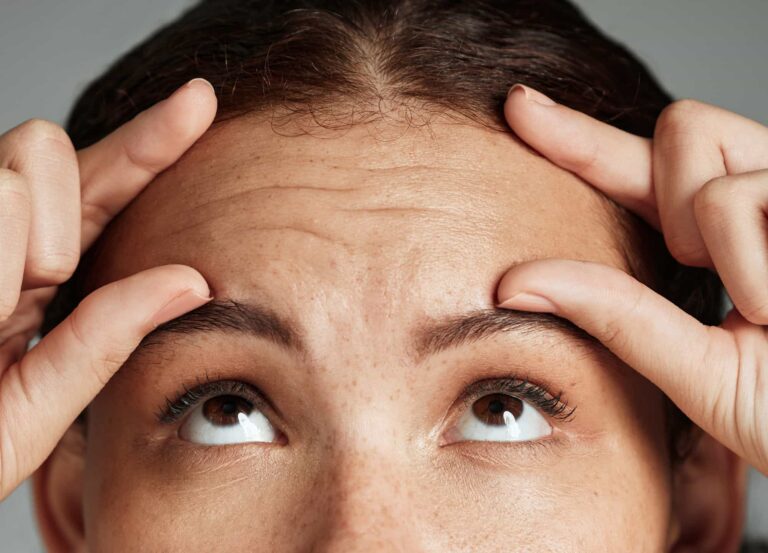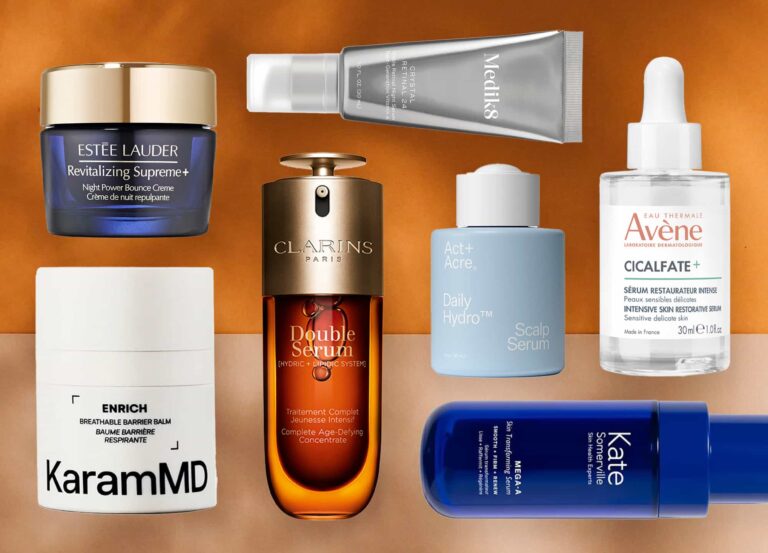In an alternate, more just universe, the end of our periods might be cause for celebration. No more monthly cramps, breakouts, and bloating! Goodbye pink-taxed tampons and birth control copays! But instead of catching a break, we get menopause—a time characterized by sweating, hair loss, and weight gain. Another unwelcome symptom? Accelerated aging. But if you know what to look out for, you can go into perimenopause prepared to tackle the changes caused by a decrease in estrogen. We asked two derms what actually happens to the skin during this time and whether you should switch to a skin-care regimen designed exclusively to address the effects of hormone deficiency.
What is menopause, and when does it occur?
Menopause is the period at which a woman’s menstrual cycles stop, caused by a depletion in the estrogen hormone. It’s diagnosed 12 months after the last menstruation and typically occurs when women are in their 40s and 50s. Experts have identified at least 34 symptoms associated with menopause and the years leading up to it (perimenopause), but the most common ones include hot flashes, a lowered sex drive, vaginal dryness, and chills.
What happens to the skin during menopause?
Decreased levels of estrogen in the body can have dramatic effects on the skin. According to Dr. Jessie Cheung, a board-certified dermatologist in Willowbrook, Illinois, estrogen “nourishes and protects” the skin, hair follicles, sebaceous glands, and the cells that promote keratin production and tissue repair. “Estrogen supports collagen production and blood flow, [helps] maintains epidermal hydration, skin elasticity, and skin thickness, and accelerates wound healing.” When the hormone starts depleting during perimenopause—which Dr. Cheung says can happen as early as 15 years before menopause—”it manifests on the skin as a decrease in glow and hydration.” As estrogen continues to plummet, skin aging is greatly accelerated; “30% of collagen is lost during the first five years of menopause, and 2% of collagen is lost every year after, during postmenopause,” she explains.
What ingredients and products should perimenopausal and menopausal women be using?
“Soothing niacinamide, for inflammation, retinoids, for skin turnover and strengthening, antioxidants, for skin repair, hyaluronic acid, for moisture, and a physical blocking sunscreen, such as zinc oxide and/or titanium dioxide, are important,” says Dr. Amy Paul, a board-certified dermatologist in Grand Junction, Colorado. But no one specific ingredient is the “magic bullet,” which is why she recommends menopausal women consult with a dermatologist to customize a product regimen and in-office treatment plan.
Related: 6 Changes That Happen to Your Skin During Menopause—and How to Adjust Your Skin-Care Routine
Is menopausal skin care formulated differently from anti-aging skin care?
In short: not really. “Medical-grade anti-aging skin care already addresses many of the skin changes caused by a depletion in estrogen,” notes Dr. Cheung, and menopausal lines share many of the same ingredients, including “peptides and retinoids, for stimulating collagen production, gentle exfoliants, to speed up cell turnover, antioxidants and botanical, for repair and soothing, niacinamide, for brightening, and hyaluronic acid and ceramides, for moisture.”
Dr. Paul agrees that there doesn’t seem to be much difference between menopausal skin care and anti-aging skin care, except for proprietary ingredient complexes. “They all generally follow the guidelines of hydrating the skin, using sun protection, and targeting the estrogen deficient changes that happen to our skin. It’s good that the menopausal lines do not have added hormones.” However, she warns, take clinical research with a grain of salt. “There are not too many nonindustry, double-blinded, non-sponsored studies done on these cosmeceutical lines. Usually they just study whether people thought their skin looked and felt better after using the products.”
Can you use menopausal skin care if you’re still menstruating?
Yes. “[These products] tend to be well-tolerated by all skin types, as menopausal skin is less resilient and more prone to irritation and itchiness,” says Dr. Cheung. “Women can start using menopausal skin care even in their late 20s as they notice textural changes, dry or irritated skin, dullness, and loss of elasticity.”
Below, four of the best skin care products for menopausal skin.
Pause Well Aging Hot Flash Cooling Mist ($39)
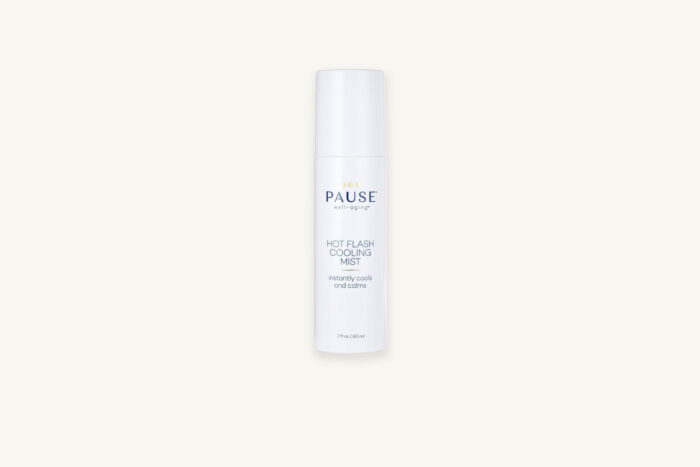
Feeling overheated? Spray this mist on the back of your neck, pulse points, face, and chest. It’s formulated with a menthol derivative that delivers an instant cooling effect plus anti-inflammatory plant extracts and the brand’s proprietary complex of peptides and antioxidants that promote collagen production. And cooling sprays aren’t just for menopause—they’re also great for soothing hot, red skin after a procedure, says Dr. Paul.
See Me Beauty Smooth Out Recovery Serum ($55)
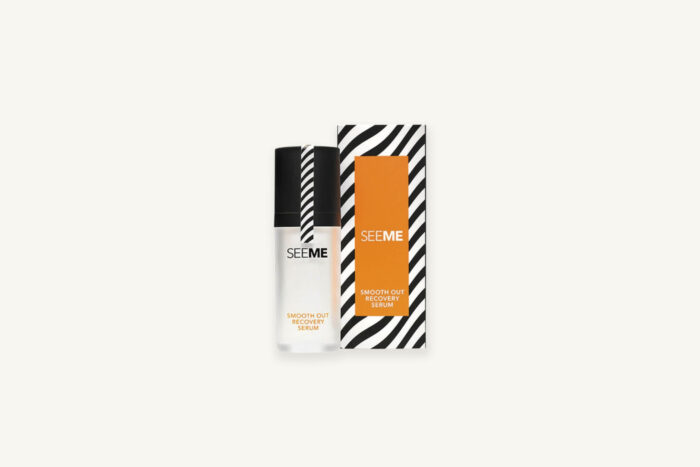
Though the See Me line is designed for estrogen-depleted skin and marketed toward women in their 40s and 50s, its formulas are rich in ingredients that can benefit all skin types and age groups, says Dr. Cheung. The Recovery Serum has all the heavy hitters needed to tighten, brighten, and lock in moisture—niacinamide, turmeric, hyaluronic acid, and glycerin.
Indeed Labs Me-No-Pause Restorative Cream ($24.99)
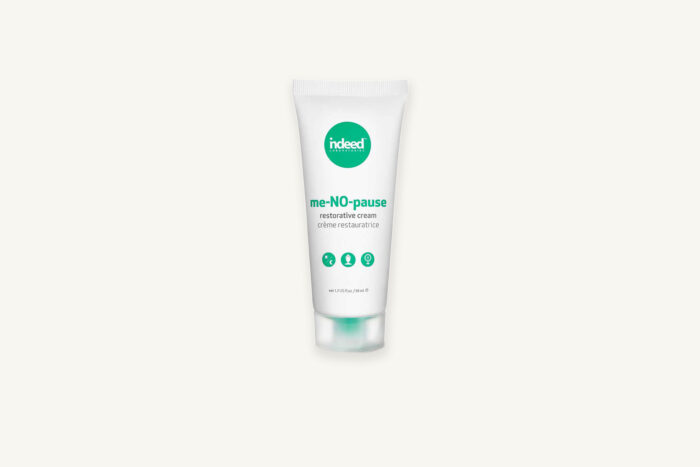
Menopausal skin-care moisturizers tend to have formulas similar to the post-procedure healing creams recommended by derms and plastic surgeons—which makes sense, given that both aim to strengthen a weakened skin barrier, replenish moisture loss, and calm inflammation. In addition to seven phytoestrogens (plant extracts that mimic the estrogen found in the body), nourishing avocado oil and shea butter, and niacinamide, this rich cream contains allantoin, a compound that speeds up wound healing and tissue regeneration.
Emepelle Night Cream ($195)
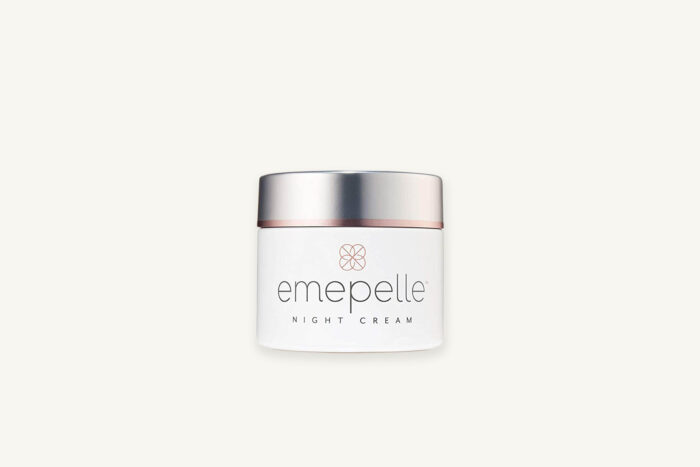
According to Dr. Cheung, Emepelle is the only skin-care brand that specifically addresses estrogen loss itself, versus its effects on skin, with its patented MEP ingredient, “a nonhormonal estrogen receptor agonist [a chemical that binds to a receptor to produce a biological response] that targets only the skin and is not absorbed into the body.” The technology works by “activating fibroblasts to form collagen, elastin, and glycosaminoglycans, to plump and hydrate the skin,” says Dr. Cheung, and studies have shown that once metabolized, it doesn’t carry any of the side effects of estrogen.







